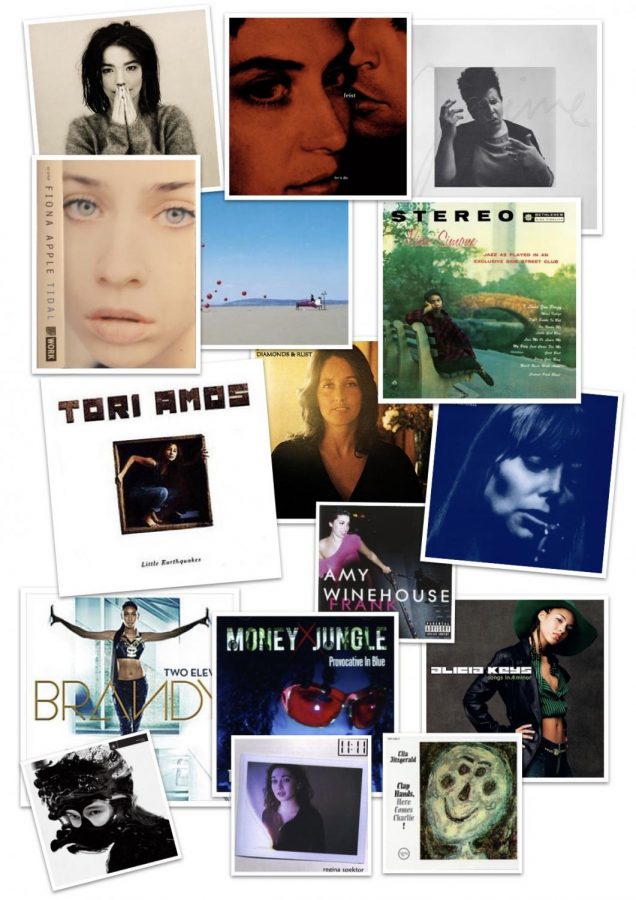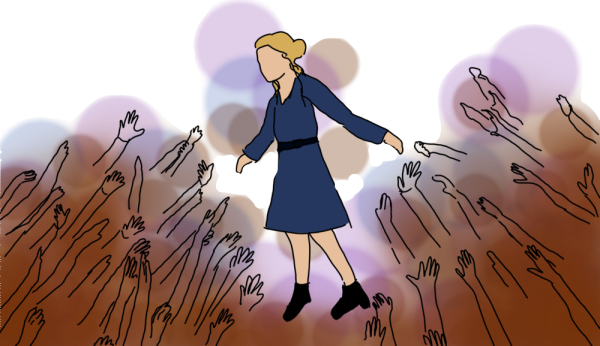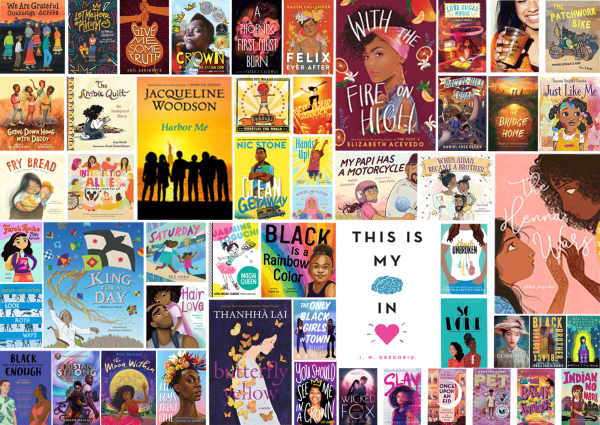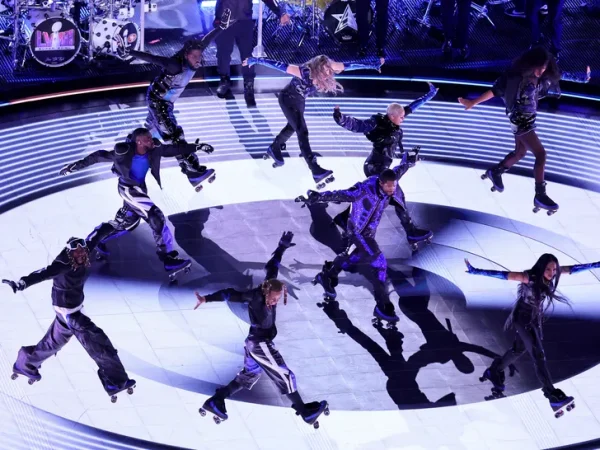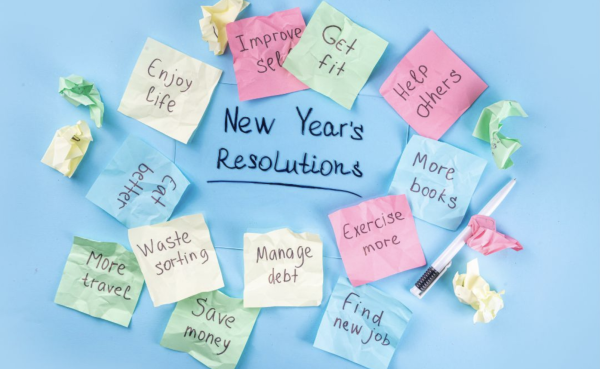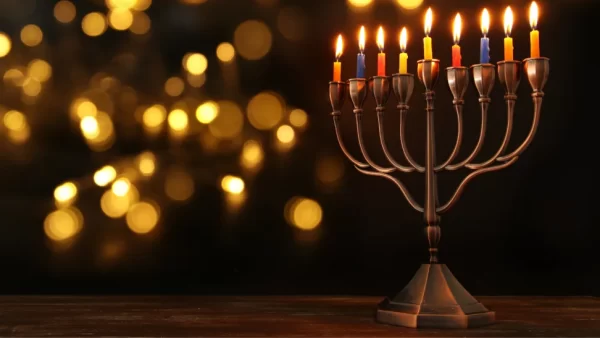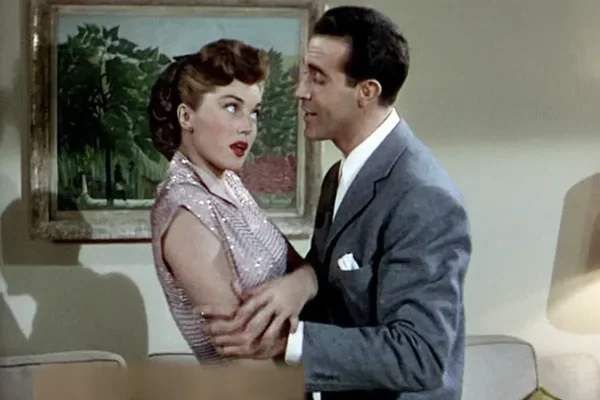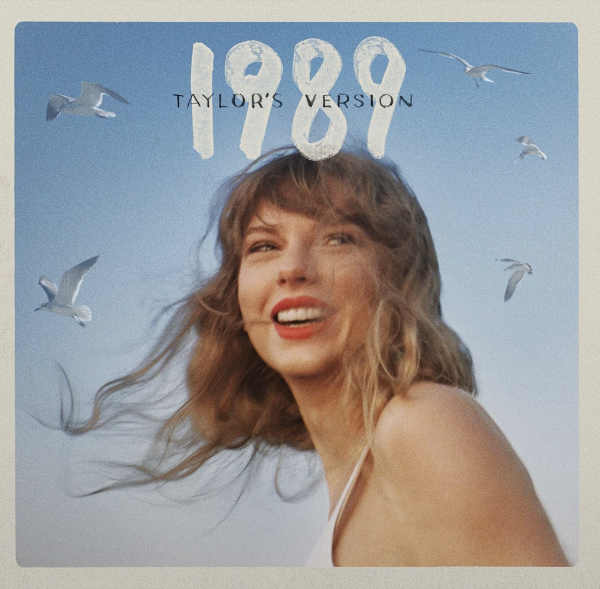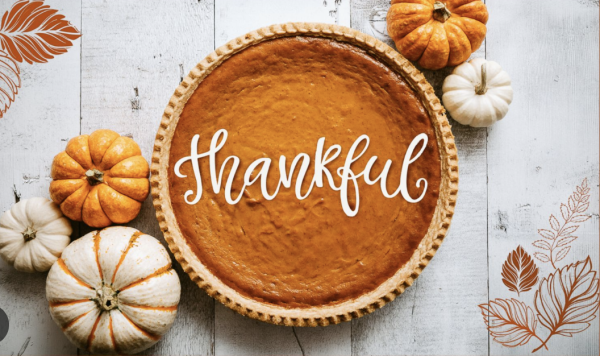Women in Music: Give Credit Where It’s Due
March 20, 2021
A few months ago, my sister posed a question that left me stumped: if I could only listen to male or female musicians for the rest of my life, which would I choose?
As I scrolled through the 3,524 liked songs on my Spotify account, I realized that male musicians dominate my music intake. Bill Withers. David Bowie. The Clash. Billy Joel. The Temptations. Jeff Buckley. Stevie Wonder. Stormzy. All of the jazz instrumentalists I love from the first half of the twentieth century are male. Which classical composers come to mind? Chopin. Bach. Mozart. Beethoven.
This was merely an observation, as I could never discredit these musicians or their artistic genius; I love so many albums and songs by male musicians, and I value the various messages they have created with their art. I also do not believe that, in the words of English composer Kerry Andrews, there is “a cabal of grunting old men in darkened, smoky rooms putting big crosses over scores submitted by ladies.” However, there is a lot of female talent that exists but has failed to be recognized and accredited as prevalently as men.
When Rolling Stone Magazine originally released its list of the 500 greatest albums in 2003, only seven albums from women appeared in the top 100 albums, three of which were created with male collaborators. After being highly criticized for a lack of gender and racial diversity for almost two decades, the magazine re-released the list in 2012 and again in 2020. Now, the list includes albums made by Missy Elliot and Kate Bush, yet still, only 11 women reside in the top 100 albums, the highest being Beyonce’s Lemonade at number 33. Additionally, only eight women appear on Rolling Stone’s “100 Greatest Musicians of All Time.”
Perhaps this is not just a reflection of Rolling Stone’s voting committee, but of the lack of female representation and recognition plaguing the industry for centuries. This reality, unfortunately, spans across every genre, every realm, and every square inch of the music industry. It seems as though every music critic’s “best-of” list has an abundance of today’s incredible female artists. However, from almost every angle possible, these musicians are accredited with far less success in the industry: there are countless unspoken rules barring them from certain scenes and a persistent culture that views them first as women and as musicians second.
Why is it that so few women are considered as one of the “greats”? During the classical period of the 18th and 19th centuries, women were typically not even allowed to attend school, much less study musical composition. During this time, a female composer would have been just as rare as a female attorney, due to the rigid gender roles and family structures.
In the beginnings of jazz, there were no women instrumentalists on bandstands or playing solo in clubs. If they were, they were singing behind a microphone. Similar to classical music, although this has dramatically changed, there are still endless settled factors behind the scenes that are harmful to female jazz musicians. At Jazz at Lincoln Center’s 2020 Women in Jazz Town Hall, a cellist by the name of Akua Dixon says “I’ve traveled with big bands all over the world and in most cases, I’ve been the only [woman].” She describes the extreme awareness and stress she faced while being in a band room for the first time: “that one experience of five minutes or less I spent in that room, let me know that I would never go in a band room ever again in life as a woman.”
Sunflower Bean is a rock band lead by bass player Julia Cumming, who has commented on her experience as a woman producing singles and the difficulty she encounters while trying to promote her music. “[Radio] stations say, ‘We like the song, this is a great song. But we have too many women in rotation right now,’ ” Cumming says. “Stations will have about three women they keep in main rotation, and if you are a woman trying to get into that rotation, that means that they’re going to kick another woman off. Men’s music is still considered music. Women’s music is still considered other music, even though women are being photographed, used on the Spotify banners and written about.”
According to research conducted by Evelyn McDonnell, the director of journalism at Loyola Marymount University, only 7.7 percent of Rock and Roll Hall of Fame inductees have been female. Additionally, the phrase “women in rock” reportedly often gives artists the sense that female rock musicians are interchangeable. Emily Haines, frontwoman of the Canadian rock band “Metric” states that as a female rock musician, “the first thing anybody wants to do is find another woman to compare you to.” She continues, “I’ve always found that incredibly insulting to everyone and have been waiting, and am still waiting, to be correctly compared to artists of my caliber that, perhaps, are men.”
A research report conducted by the USC Annenberg Inclusion Initiative shows that 20% of all musical artists are female, while only 2% of music producers are female. Women can do more than just the top lines of music production; they can and already have produced, written, and recorded songs that continue to shake the world. And just because artists such as Billie Eilish, Ariana Grande, and Lizzo sit at the top of the pop music spectrum, they are not a representation of all women in the music industry; millions of female musicians are still trying to climb the same mountains that men effortlessly step over. The myth that women, BIPOC, and LGBTQ+ members should simply “step up” if they want to achieve the same accomplishments as white men must be debunked.
In celebration of Women’s History Month, I wanted to share the work of some female vocalists and instrumentalists that inspire me.
Albums:
Diamonds and Rust by Joan Baez
Frank by Amy Winehouse
Songs in A Minor by Alica Keys
Debut by Björk
Clap Hands, Here Comes Charlie by Ella Fitzgerald
Little Earthquakes by Tori Amos
Jamie by Brittany Howard
Let It Die by Feist
11:11 by Regina Spektor
Money Jungle: Provocative in Blue by Terri Lyne Carrington
Tidal by Fiona Apple
Two Eleven by Brandy
Blue by Joni Mitchell
Okovi by Zola Jesus
Wake Up and Smell the Coffee by The Cranberries
The Miseducation of Lauryn Hill by Ms. Lauryn Hill
Little Girl Blue by Nina Simone
Every day can be International Women’s Day. We just have to support women the way we should and need to.
